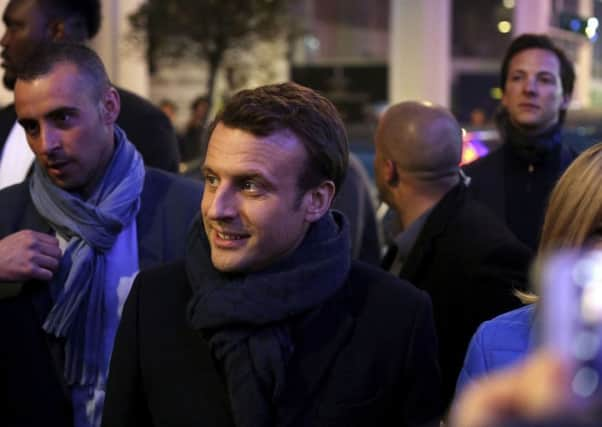YP Comment: France votes for a fresh start. Decency prevails over division


Though he did serve as economics minister for two years, Mr Macron only launched his fledgling En Marche! movement – Let’s move! – 12 months ago and Parliamentary elections next month will determine the extent to which he will be able to deliver his vision. It’s like Theresa May winning the keys to 10 Downing Street without any MPs behind her.
Furthermore, his well-intended attempt to cut payroll taxes, relax Sunday trading laws and allow employers to negotiate directly with workers, rather than the trade unions, in order to kickstart France’s faltering economy ended with inglorious failure after his predecessor, the weak and ineffectual Francois Hollande, capitulated.
Advertisement
Hide AdAdvertisement
Hide AdIn many respects, French voters had no choice after candidates from the traditional republican and socialist movements failed to make the run-off between Mr Macron, the son of two Amiens doctors, and Marine Le Pen from the far-right Front National. Decency prevailed over division. Even the conservative Le Figaro newspaper, whose political sympathies are not aligned to the victor, concluded that a Macron presidency was preferable to the Élysée Palace being occupied by a “aggressive, sniggering and offensive” candidate.
Thankfully, an apparent attempt by Russian computer hackers to influence the outcome did not come to pass – actions that could have far-reaching diplomatic consequences after the Kremlin sought to manipulate last November’s US presidential election.
Yet, while the next phase of Anglo-Franco relations will inevitably be shaped by Brexit, close co-operation on security matters will be paramount. As established communities have become fractured and polarised by a combination globalisation and mass migration, neither Britain, nor France, have been immune from international terrorism. And while the UK has, mercifully, been spared atrocities on the scale of the mass loss of life suffered on the other side of the English Channel in the past two years, the best defence of all is far more cordial relations between Downing Street and the Élysée Palace.
Healthy debate
THAT the issue of mental health is being taken so seriously by each of the main parties shows not just the extent to which attitudes have changed, and for the better, but the size of the challenge facing the next Government.
Advertisement
Hide AdAdvertisement
Hide AdPlatitudes are not sufficient – promises have to be implemented and voters have every right to be slightly sceptical about Tory plans to recruit 10,000 extra staff by the end of the decade when there is already a chronic shortage of doctors and nurses. A lack of clarity over funding does not inspire total confidence.
This matters. Like the shortcomings in community care policy and out-of-hours GP cover, inadequacies in mental health provision are exacerbating the A&E beds crisis being faced by so many of this region’s hospitals on a daily basis. Even the best-run hospitals are struggling because they’re at the mercy of other organisations.
Even though Brexit pre-empted the June 8 poll, Theresa May and Jeremy Hunt, the Health Secretary, must accept that the NHS is a legitimate election issue. After the party pressed ahead with a reorganisation that was not set out in its 2010 manifesto, the outcome has been less accountability and longer waiting times.
Despite a more enlightened approach on mental health, the NHS is the Tory party’s Achilles heel and Mrs May should not be surprised if Labour now attempts to exploit this lack of sure-footedness.
The extraordinary Archbishop
Advertisement
Hide AdAdvertisement
Hide AdTHREE cheers to the Archbishop of York for cutting to the chase when the BBC’s Andrew Marr suggested the Government wasn’t doing enough for the North.
Pointing to record productivity levels at Nissan’s car plant in the North East, Dr John Sentamu told his slightly snideful inquisitor not to “look at things in purely negative terms” before citing the policy challenges that remain with regard to the NHS and schools.
And in a gentle rebuke to those politicians trying to woo “ordinary, hardworking people”, he pointed out that such individuals do not exist because each and every person has “extraordinary” values.
If only this extraordinary man of humanity, compassion and positivity was standing for election.